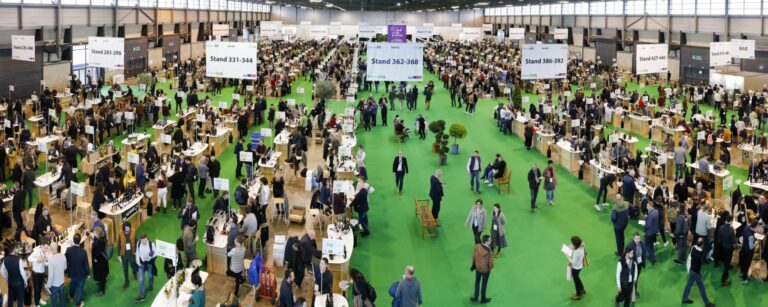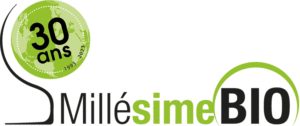
Millésime BIO celebrates its 30th anniversary in 2023
Millésime BIO will host its digital session on 23 & 24 January 2023, followed by the physical fair at the Montpellier Exhibition Centre on 30 & 31 January and 1 February 2023
With more than 1,500 exhibitors from 20 countries, Millésime BIO is the largest wine fair for organic wines in the world, attracting thousands of professional buyers each year. Since 2019, it is also open to organic beers, spirits and ciders. It is an exhibition organised by Sudvinbio, an association, which brings together producers and marketers of organic wines from the region of Occitanie, the largest organic vineyard in France in terms of surface area.
Millésime BIO, the first wine trade event of the year in 2023 will revolve around two main focal points:
- The digital session, on 23 & 24 January: the digital session continues with 500 exhibitors and visitors from across the globe who will be given the opportunity to engage with each other ahead of the physical fair and establish contacts. At the event, visitors will be given a preview of the winners of the 2023 Millésime BIO Challenge, the largest international competition for organic wines and beers which awards the finest organic products.
- The physical fair, on 30 & 31 January and 1 February at the Montpellier Exhibition Centre. Alongside the event, visitors will be able to attend self-tastings or curated tastings, several themed conferences and a number of masterclasses spread over three days. The programme features a dedicated area for Young Winegrowers representing the new wave of producers for the coming 30 years. The bulk sector will also make its first appearance, with the digital and physical fair incorporating the category for the first time.
Another new feature of the anniversary exhibition of Millésime BIO is the launch of an event for the public outside the exhibition centre, which will showcase organic wine in the city of Montpellier.
European observatory of organic wine consumption
According to the study conducted by Millésime BIO, 96% of French consumers recognise an organic label, and 93% of those know what it means. So, in France, organic labels are the most known but also the best understood. The situation is similar in the other countries covered by the survey, although the scores vary: the French and Germans are more aware of the labels than the Belgians and especially the British.
In the eyes of European consumers, the family of organic labels is the best positioned on major criteria such as the non-use of synthetic chemicals, respect for the environment, health protection and the reliability of controls as well as quality.
“Organic is now the reference label for wine consumers. It is the best known and most trusted when asked about what labels mean to them. The survey also shows that labels that certify approaches that extend the organic approach also generate confidence. Their growth is a sign of the maturity of the organic sector, as it allows operators who wish to do so to follow a complementary path. Moreover, many exhibitors at Millésime BIO are doubly certified, which makes it possible to cover the diversity of expectations and tastes of today’s consumers,” says Nicolas Richarme, President of Sudvinbio.
Organic wine: key figures for France
In terms of surface area and turnover, France is the world’s leading producer of organic wine. In 2021, the first full year of reference, all the indicators are up, not to say strong or very strong growth, including the number of conversions, which have jumped by 23% in one year, which suggests an increase in the area under production, but also in sales, on the one hand because these new volumes will replace conventional volumes on the markets, and on the other hand because some operators did not have, until now, sufficient volumes to attack certain markets, especially export markets.
Photo: Millesime BIO

